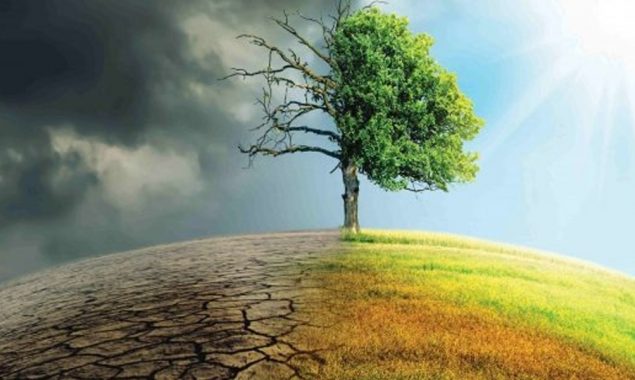
Photo: File
Our Correspondent
KARACHI: Climate crisis is getting worse and it is re-shaping the development paradigm and socioeconomic structure of the society. To address this global challenge, youth should come forward and take the leadership role.
This was stated by speakers during a seminar titled “Enhancing awareness and engagement of youth towards addressing coastal climate vulnerabilities and gender empowerment, jointly organised by the WWF-Pakistan, University of Sindh, in collaboration with the Oxfam GB in Pakistan.
Prof Dr Rafique Ahmed Memon, pro-vice chancellor of the Sindh University, Thatta Campus, said that the climate change is impacting almost each sector and has caused huge losses to the country.
As a result of the climate impacts, most of the ecosystems are losing their resilience; therefore, earth has become much less hospitable for the modern globalised society.
“[The] youth should be engaged in [the] climate change initiatives, as they can play [a] pivotal role in [the] promotion of [the] climate change resilience and adaptation,” he added.
Dr Tahir Rasheed, regional director of WWF-Pakistan, said that despite its global ecological significance, the Indus Delta is most vulnerable to the climate change impacts and is at a greater risk of degradation.
He said decrease in river water flows has led to reduction in sediment deposition, seawater intrusion, land use changes, sea level rise and disappearance of various deltaic fish species, he said, adding that these factors together are putting one of the largest and precious deltaic ecosystems of the world at risk of shrinking and degradation.
Prof Dr Wazir Ali Baloch said that the coastal belt of Sindh is highly prone to the climate change-related disasters. Due to the loss of livelihood resources, the local people are migrating to other cities. He said the scholars of University of Sindh are engaged in contributing towards mitigating the effects of the climate change through several research projects. These efforts aim at improving the resilience of rural communities of Sindh and enhance their knowledge and skills to prepare for, adapt to and mitigate the climate and disaster risks.
Dr Mukhtiar Ahmed Mahar, director coastal and deltaic studies, Sindh University Campus, Thatta, said that the coastal belt of Sindh is highly affected by climatic events. It is high time to develop understanding about the adverse impacts of the climate change and find practical solutions. He emphasised: “We need to introduce climate change resilient crop species to meet food security needs of the people in the coastal belt.”
Prof Dr Anila Naz Soomro said that the climate-smart agricultural techniques, diversifying livelihoods, long-term sustainability of the environment and mangrove conservation should be promoted.
She also appreciated to efforts of the Sindh University and the WWF-Pakistan along with other organisations for encouraging research studies and supporting conservation efforts in the deltaic region.
Nasir Panhwar, an environmentalist, said that the cost of degradation of the Indus Delta is over $2 billion/annum. He also shared that for 138 days each year, the delta does not receive freshwater because the flows downstream of the Kotri Barrage have been limited to August and September only.
The situation allows the seawater to penetrate the delta for hundreds of kilometres during the large part of the year. The limited flow of freshwater is causing environmental degradation and negatively impacting traditional livelihoods, survival and resilience patterns in the presence of high levels of social inequalities, he added.
Jawad Umer Khan, project coordinator briefed the participants about the Oxfam GB project interventions in the coastal belt of Sindh.
He shared the progress of the mangroves conservation initiative and community engagement in the Indus Delta. Detailed researches have been made till now, including community vulnerability and risk assessment, sectoral local adaptation plan of action and loss and damage calculations along with other studies.
Hamera Aisha, manager of the WWF-Pakistan; WWF-Pakistan efforts aim at improving the resilience of rural communities of Sindh and enhance their knowledge and skills to prepare for, adapt to and mitigate climate and disaster risks.
Dr Rafique Ahmed Lashari, director of the Centre for Pure and Applied Geology; Prof Dr Nek Muhammad Sheikh, director of the Institute of Physics; Dr Amanullah Mahar from Sindh University also spoke on the occasion.
Catch all the Business News, Breaking News Event and Latest News Updates on The BOL News
Download The BOL News App to get the Daily News Update & Follow us on Google News.




